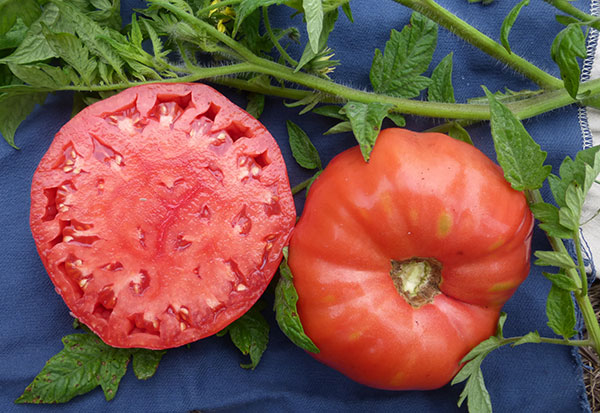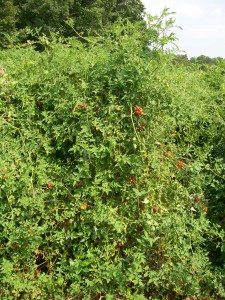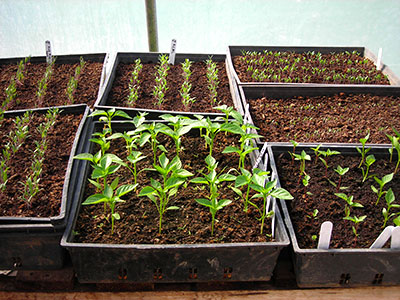by Jordan Charbonneau, photos by Ira Wallace
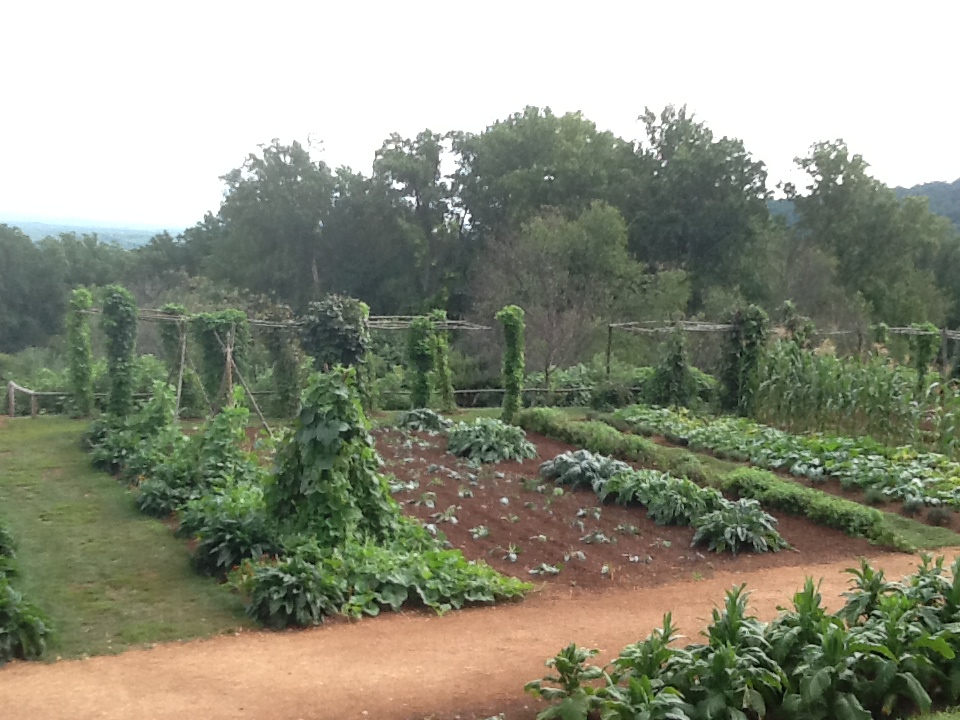
In my dreams of a picturesque garden there are always trellises. They may bring to mind quaint little fairy tale cottages, but trellises aren’t just for their good looks. There are so many plants that can be grown on a trellis and so many reasons to grow them that way.
Why trellis?
Trellising saves resources.
Want to grow more vegetables in little spaces? Grow up! One of the easiest ways to make the best use of small garden spaces is by growing plants on trellises. Plants like pole beans are extremely productive and can be grown in narrow rows if trellised.
Trellised plants also use less water. Instead of watering an entire sprawling plant you can just water the base where the plants roots are located.
Trellises add structure.
Adding structure and height to a garden is often done to make gardens more beautiful. but there are other benefits too. Song birds will appreciate having places to land in your garden and they can help control insect populations.
Having the plants up off the ground also increases air flow and can help minimize plant diseases.
Trellises add shade.
Trellising plants can also help you add much needed summertime shade. A vining vegetable crop like cucumbers can be grown on a slanted trellis above a bed of a cool weather vegetable like lettuce, thereby helping you to grow a late season crop. Deciduous perennials (those that drop their leaves in the fall) can be grown on trellises on the southern side of houses to shade the home in the heat of summer and let the sun through in the winter. Some plants, like pole beans, gourds, and flowers like morning glories, have such long vines they can easily cover small structures (like teepees) making excellent summer forts for kids.
Trellised plants are easier to harvest.
Vegetables on trellises also tend to be easier to harvest. Instead of searching through a sprawling jungle of squash plants, you can easily spot them hanging from a trellis. Plus there’s little or no bending over. The fruits also tend to be cleaner and more uniform, perfect for market growers.
What can be trellised?
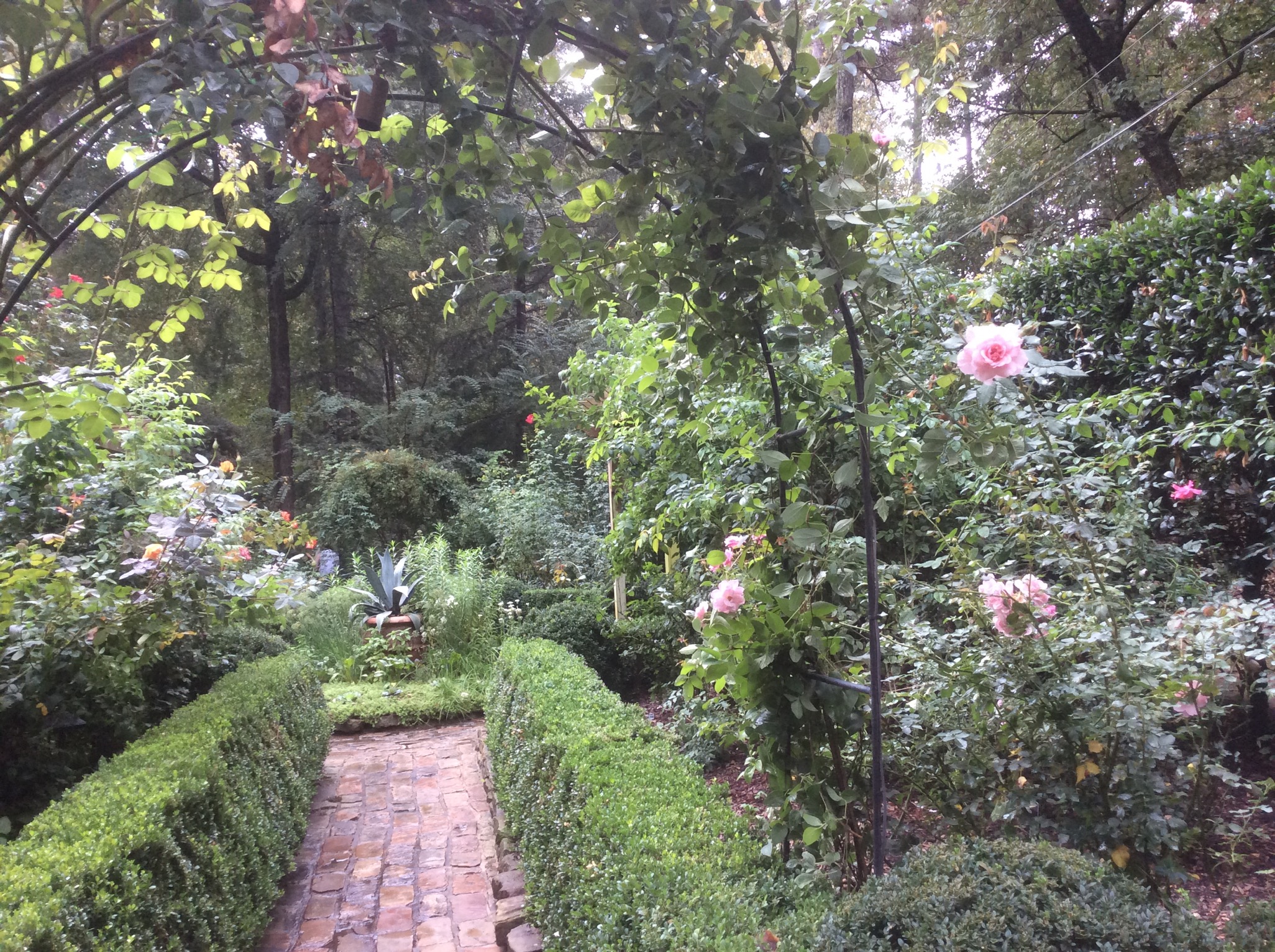
Many plants do well on a trellis and some require one. Below are some of the vegetables, flowers, and perennials that make ideal candidates for trellising.
| Vegetables | Flowers | Perennials |
| Cucumbers | Sweet Pea | Hops |
| Pole Beans | Morning Glory | Hardy Kiwi |
| Peas | Clematis | Grapes |
| Melons | Nasturtium | |
| Gourds | ||
| Squash | ||
| Pumpkin | ||
| Indeterminate Tomatoes |
How do I make a trellis?
There are tons of trellis designs and it can be hard to choose. The major deciding factors will be your garden’s style, your budget, the materials you have on hand, and which plants you plan to trellis. Trellises can be whimsical, practical, or a mix of both. They can be shaped as arches, forts for children, or simple fences.
Use natural materials.
Many people choose to make simple teepees like these which can be made from bamboo, straight saplings, or branches, and held together with twine or wire. There are also many different shaped designs using the same materials.
Use fencing.
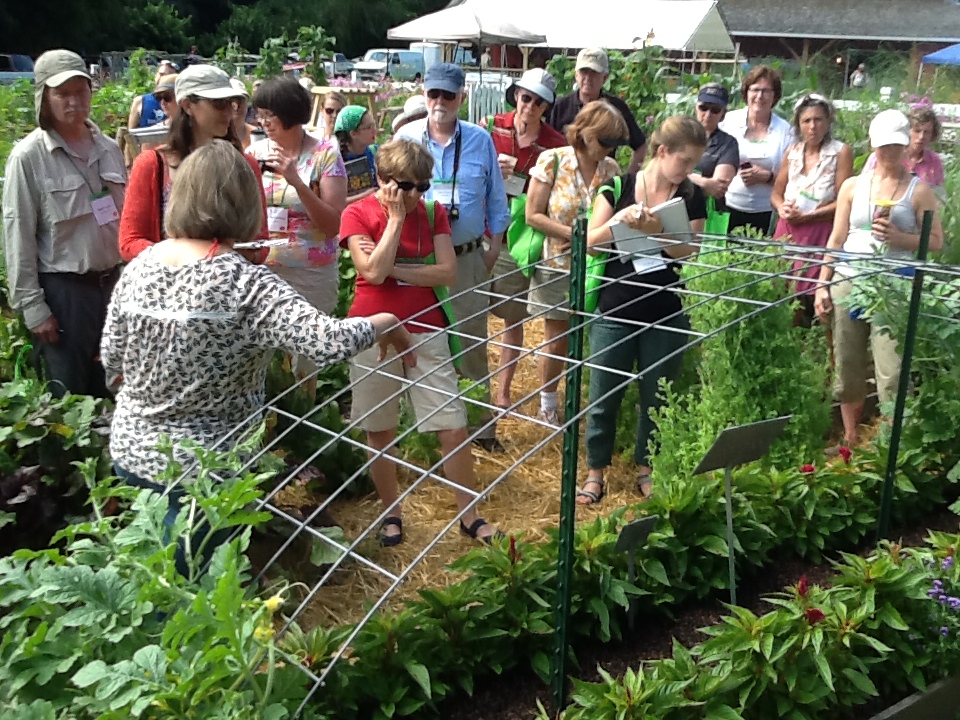
Hog panels or sections of wire fencing are another popular choice. Hog panels and sturdier fencing can be used two ways: as a fence or bent over as an arch.
Purchase or build trellises from lumber.
If you have money to purchase trellises or a knack for woodworking, there are designs for folding trellises that can be stored each season as well as more creative designs. You can also install large trellises in front houses or over patios.
Repurpose junk.
Some people also repurpose old junk into awesome trellises. Things like iron bed frames and gates, old umbrella frames, and old antennas are great for climbing plants.
When designing any trellis it’s important to think about what you’re growing. Is it a permanent trellis for a perennial that will be in the same spot for years or something you’ll want to rotate next year? You’ll also need to decide on the size. Obviously pea plants require smaller trellises than grape vines. Some plants, like pumpkins, melons, and larger squash varieties, will need sturdy trellises to support the immense weight of their fruit.
How do I trellis plants?
Some plants (including morning glories, beans, and cucumbers) are easy to trellis. Simply sew seeds next to a trellis and they’ll do the work. Some plants, like tomatoes, need a little help: they need to be manually trellised. You can use tomato-specific trellis methods like the “Florida Weave” which surrounds the plants with twine. Or use traditional trellises and attach plants with tomato clips or even old scraps of fabric. Just be sure that your method does not cut into the plant as it grows.
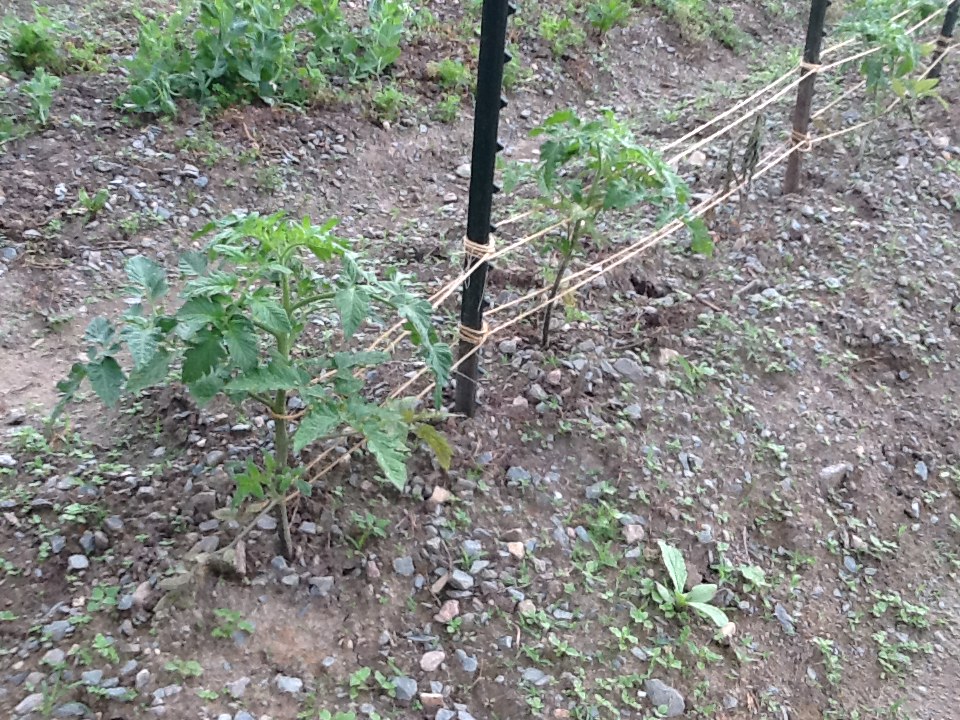
For some large-fruited plants like pumpkins, melons, and large squash varieties, you may need extra support. You can create small “hammocks” for each fruit from an old shirt or other stretchy material that can be tied off to the trellis as the vine cannot support the fruit’s mature weight.
If you’re ready for a super productive and beautiful garden this year it’s time to get some trellises ready! The best time to add trellises is before planting, not after, so don’t delay! It’s finally spring and setting up trellises is a great way to get out in the garden.
Want to know more about trellises? Check out these posts:
https://blog.southernexposure.com/2014/12/ridge-gourds-on-cattle-panel-trellising/
https://blog.southernexposure.com/2013/07/trellising-with-bamboo/
What plants have you grown on a trellis?

